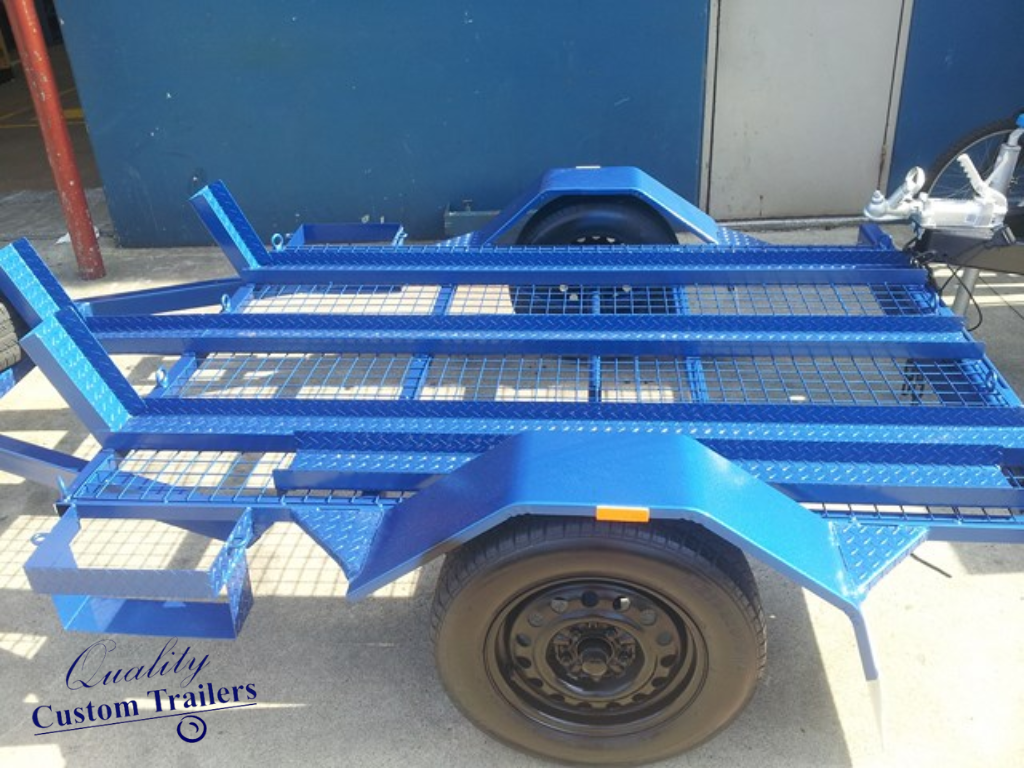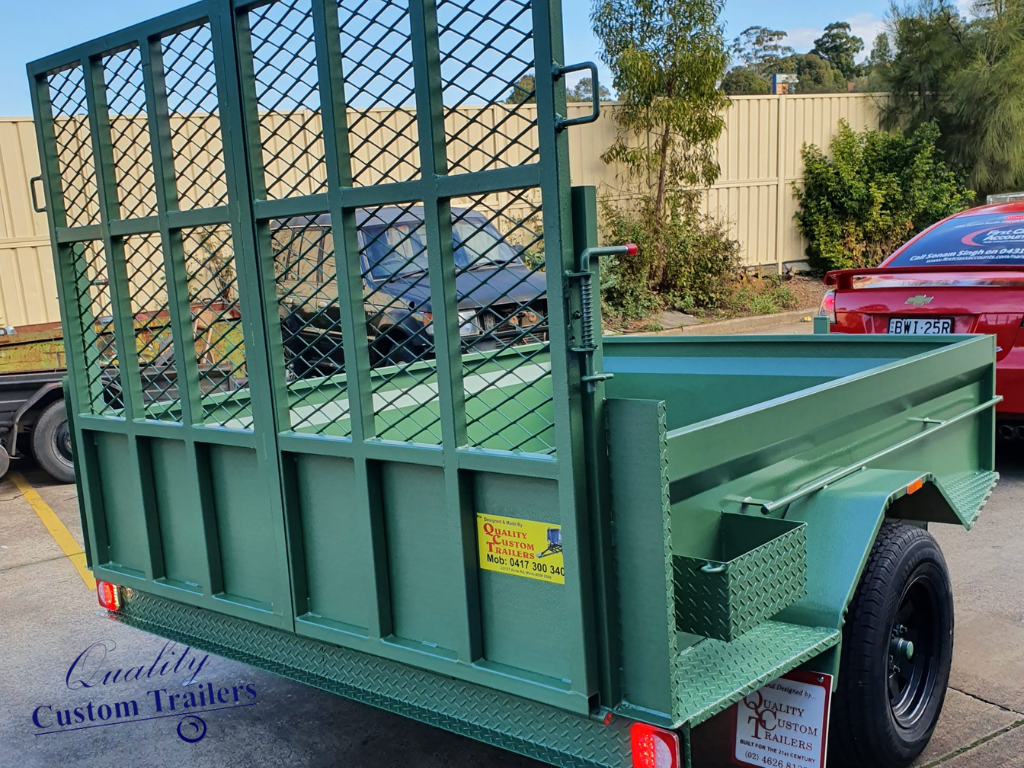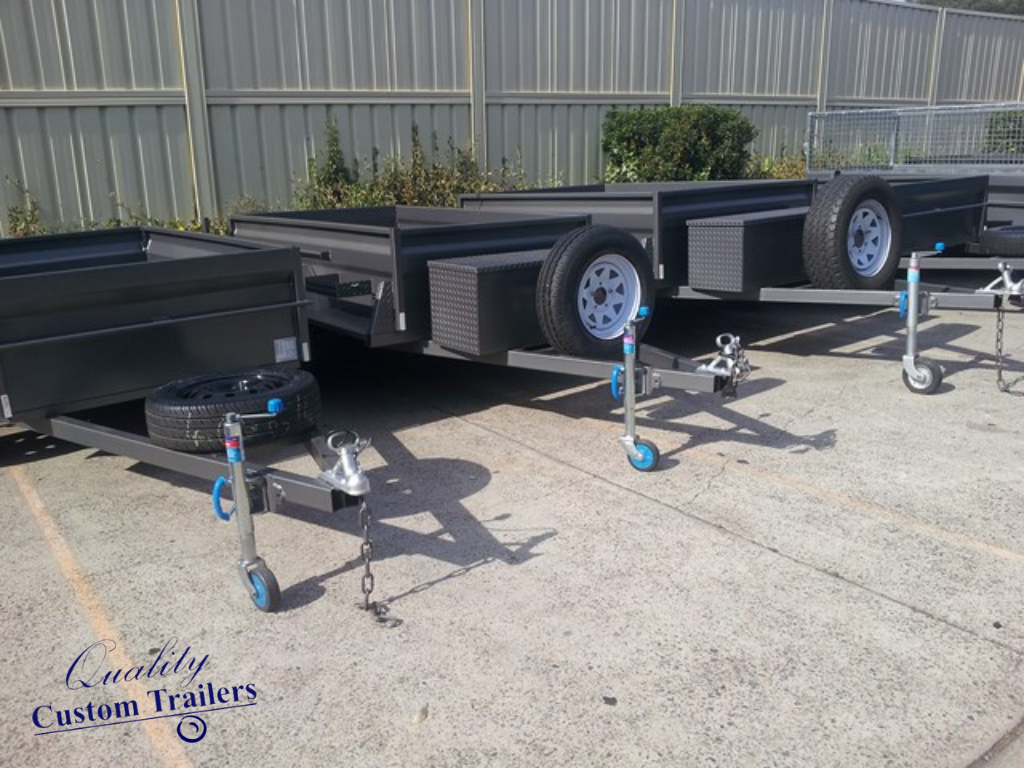A trailer is a non-motorised vehicle that is designed to be towed by a motorised vehicle, such as a car, truck, or tractor. Trailers are used for a wide range of purposes, including transporting goods, livestock, machinery, and other heavy loads. They come in various types and configurations, each suited to specific tasks. Trailers can be open or enclosed, and they can be designed for specific functions such as hauling vehicles, boats, or equipment.
Custom Flat Top Trailers: A Closer Look
What is a Custom Flat Top Trailer?
A custom flat top trailer is a type of trailer that is specifically designed and built to meet the unique requirements of the user. Unlike standard trailers, which come with fixed dimensions and features, custom flat top trailers can be modified in terms of size, load capacity, and additional features. These trailers typically have a flat top design, providing a versatile platform for transporting a wide range of items, including machinery, construction materials, and bulky goods.
Key Features and Benefits of Custom Flat Top Trailers
Custom flat top trailers offer several key features and benefits that make them a preferred choice for many users:
- Tailored Design: One of the main advantages of a custom flat top trailer is its tailored design. Users can specify the exact dimensions, load capacity, and features they need, ensuring the trailer meets their specific requirements.
- Enhanced Durability: Custom trailers are often built with higher quality materials and reinforced structures, making them more durable and capable of handling heavier loads. This is particularly important for industries that require the transport of heavy machinery or construction materials.
- Flexibility: Custom flat top trailers offer greater flexibility in terms of design and functionality. Users can choose from a range of customisation options, such as additional tie-down points, ramps, and specialised fittings, to enhance the trailer’s utility.
- Optimal Performance: By tailoring the trailer to their specific needs, users can achieve optimal performance and efficiency. Custom trailers are designed to handle specific tasks more effectively, reducing the risk of damage and improving overall productivity.
- Increased Safety: Custom trailers can be equipped with specialised safety features, such as enhanced braking systems, stabilisers, and reinforced frames, ensuring safer transport of goods and materials.
Standard Trailer Models: Understanding the Basics

What Constitutes a Standard Trailer Model?
Standard trailer models are pre-designed and mass-produced trailers that come with a set range of features and specifications. These trailers are designed to cater to general hauling needs and are typically available in various sizes and configurations. Standard trailers are often chosen for their affordability and ease of availability.
Common Features of Standard Trailer Models
Standard trailer models come with a variety of common features that make them suitable for general use:
- Fixed Dimensions: Standard trailers have fixed dimensions, which may not be suitable for all hauling tasks. They are available in various sizes, but users must choose from predefined options.
- Basic Load Capacity: These trailers come with a basic load capacity, which may not be sufficient for heavier or specialised loads. Users must ensure that the standard trailer can handle their specific requirements.
- General Design: The design of standard trailers is intended for general use, which means they may lack specialised features or fittings needed for specific tasks.
- Affordability: One of the main advantages of standard trailers is their affordability. They are generally less expensive than custom trailers, making them a cost-effective option for those with basic hauling needs.
- Availability: Standard trailers are readily available from various manufacturers and dealerships, allowing for quick purchase and deployment.
Advantages of Custom Flat Top Trailers
Tailored Design to Meet Specific Needs
One of the primary advantages of a custom flat top trailer is its ability to be tailored to meet specific needs. Users can work with manufacturers to design a trailer that fits their exact requirements, whether it involves specific dimensions, load capacities, or specialised features. This ensures that the trailer is perfectly suited to the tasks it will be used for, enhancing efficiency and effectiveness.
Enhanced Durability and Performance
Custom flat top trailers are often built with high-quality materials and reinforced structures, making them more durable and capable of handling heavy loads. This increased durability translates to better performance, especially in demanding environments. Whether transporting heavy machinery, construction materials, or other bulky items, a custom flat top trailer can offer the strength and resilience needed to get the job done safely and efficiently.
Limitations of Standard Trailer Models
One-Size-Fits-All Approach
Standard trailer models follow a one-size-fits-all approach, which can be limiting for users with specific needs. These trailers are designed to meet general requirements, offering fixed dimensions, features, and capacities that may not suit all applications. For businesses or individuals with unique transportation needs, this lack of customisation can lead to inefficiencies and potential challenges in safely and effectively transporting goods.
Potential Issues with Load Capacity and Durability
Standard trailers are built with a general load capacity in mind, which might not be sufficient for all users. This can lead to problems if the trailer is used to carry heavier loads than it was designed for, potentially causing damage to the trailer and compromising safety. Additionally, standard models may not have the reinforced structures or materials needed for demanding tasks, resulting in wear and tear over time that could affect the trailer’s durability and lifespan.
Limited Customisation Options
One of the primary drawbacks of standard trailers is the limited customisation options available. Users must choose from pre-designed models that may not include the specific features or configurations needed for their particular tasks. For example, a standard trailer might lack additional tie-down points, ramps, or other custom fittings that could enhance its functionality and efficiency. This lack of flexibility can be a significant limitation for those with specialised transportation requirements.
Cost Comparison: Custom vs. Standard Trailers
Initial Investment: Custom Flat Top Trailer vs. Standard Trailer
When considering the initial investment, custom flat top trailers typically come with a higher upfront cost compared to standard trailers. The process of designing and building a trailer to specific requirements involves additional time, materials, and labour, all of which contribute to the higher price. In contrast, standard trailers benefit from mass production efficiencies, resulting in lower costs for the end user. However, it’s essential to weigh these initial costs against the potential benefits and long-term value that a custom trailer can offer.
Long-Term Value and Return on Investment
While custom trailers may have a higher initial investment, they often provide greater long-term value and return on investment (ROI). Custom flat top trailers are designed to meet specific needs, enhancing efficiency, safety, and performance. This tailored approach can lead to reduced maintenance costs, longer lifespan, and improved productivity. In the long run, the benefits of a custom trailer can outweigh the initial cost difference, providing a more cost-effective solution for businesses and individuals with specialised requirements.
Maintenance and Longevity
Maintenance Requirements for Custom Flat Top Trailers
Custom flat top trailers are often built with higher quality materials and reinforced structures, which can reduce the frequency and cost of maintenance. However, regular maintenance is still crucial to ensure optimal performance and longevity. Maintenance tasks for custom trailers may include:
- Regular Inspections: Conducting routine inspections to identify and address any potential issues early.
- Cleaning and Lubrication: Keeping the trailer clean and lubricating moving parts to prevent rust and wear.
- Tire Maintenance: Checking tire pressure and tread regularly to ensure safe operation.
- Brake and Suspension Checks: Ensuring that brakes and suspension systems are in good working order to maintain safety and performance.
How Standard Models Hold Up Over Time
Standard trailer models, while more affordable initially, may require more frequent maintenance and repairs due to their general design and materials. These trailers may not be built to withstand the same level of use and stress as custom models, leading to a shorter lifespan and higher maintenance costs over time. Users of standard trailers should be prepared for more regular upkeep and potential issues related to load capacity and durability.
Making the Right Choice for Your Needs

Factors to Consider When Choosing Between Custom and Standard Trailers
When deciding between a custom flat top trailer and a standard model, consider the following factors:
- Specific Needs: Assess your transportation requirements and determine if a standard model can meet them or if a custom solution is necessary.
- Budget: Evaluate your budget for both the initial investment and long-term maintenance costs.
- Flexibility: Consider the importance of customisation and flexibility in your operations.
- Durability: Think about the expected lifespan and durability of the trailer based on your usage patterns.
How to Assess Your Specific Requirements
To assess your specific requirements, start by listing the primary tasks the trailer will be used for and the types of loads it will carry. Consider any special features or configurations that would enhance efficiency and safety. Consult with manufacturers and experts to understand the options available and how they can be tailored to your needs. By thoroughly evaluating your requirements and weighing the pros and cons of custom and standard trailers, you can make an informed decision that best suits your needs and budget.


